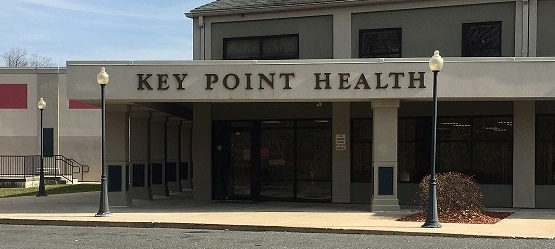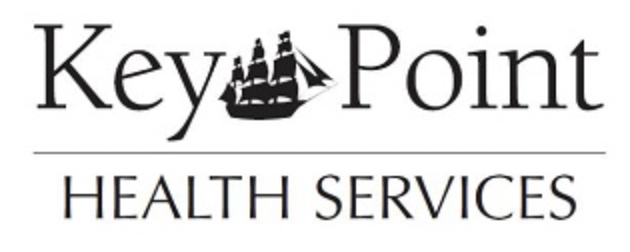Key Point Health Services - Outpatient Clinic


Overview
Key Point Health Services - Outpatient Clinic is a mental health treatment center for people seeking treatment near Baltimore County. As part of their treatment modalities for recovery, Key Point Health Services - Outpatient Clinic provides couples/family therapy during treatment. Key Point Health Services - Outpatient Clinic is located in Catonsville, Maryland, accepting cash or self-payment for treatment.
Key Point Health Services - Outpatient Clinic at a Glance
Payment Options
- Cash or self-payment
- Medicaid
- Medicare
- Private health insurance
- Federal military insurance (e.g., TRICARE)
Assessments
- Screening for tobacco use
- Comprehensive mental health assessment
- Comprehensive substance use assessment
Age Groups
- Seniors or older adults
- Young adults
- Children/adolescents
- Adults
- Seniors
Ancillary Services
- Intensive case management
- Case management service
- Chronic disease/illness management
- Court-ordered outpatient treatment
- Education services
Treatment At Key Point Health Services - Outpatient Clinic

Conditions Treated
Mental health treatment:
Mental health facilities offer a safe space for individuals to get specialized care. Trained experts create personal plans using therapies, possibly including medication. The goal is to help individuals cope better and lead fulfilling lives, with constant support and a community feel.
Substance use treatment:
Substance abuse treatment programs can help to address addiction and, if relevant, any co-occurring mental health conditions. Programs include outpatient, inpatient, dual-diagnosis, and partial hospitalization. The addict will receive therapies like cognitive behavioral therapy, or dialectical behavioral therapy, and sometimes complementary therapies like acupuncture and mindfulness-based therapy. By attending skills training and recovery groups you’ll build a strong foundation for your recovery and strengthen your support network, increasing your chances of long-term recovery success.
Co-occurring Disorders:
Dual-diagnosis rehabilitation centers specialize in the treatment of individuals who suffer from a co-occurring mental health disorder and a substance use disorder. This complex interplay between addiction and mental health can make recovery more challenging, as each condition may exacerbate the symptoms of the other. Dual-diagnosis rehabilitation centers offer an integrated approach that addresses both issues simultaneously and often includes a comprehensive assessment for an Integrated Treatment Approach through Holistic Therapies, including family therapy and aftercare treatment.

Levels Of Care
Outpatient:
Outpatient treatment in a rehab center offers structured therapeutic services for individuals seeking recovery without full-time residential admission. Unlike intensive outpatient programs, which demand more frequent and longer sessions, standard outpatient care provides a more flexible approach, allowing participants to maintain daily activities and responsibilities while undergoing treatment.

Treatment Modalities
Couples/family therapy:
Couples Therapy during rehab is a specialized counseling program designed to support couples who are navigating the challenges of addiction recovery together. This form of therapy provides a safe and structured environment where couples can address the impact of substance abuse on their relationship and work towards healing and growth as a team. By addressing both individual and shared issues, couples in rehab can strengthen their bond and increase their chances of sustained recovery, fostering a healthier and happier future together.
Group counseling:
Group Counseling is a therapeutic approach where individuals come together under the guidance of a trained counselor to share experiences, offer support, and gain insights. This collective format promotes mutual understanding and growth, allowing participants to learn from one another's perspectives and challenges.
Cognitive behavioral therapy:
Cognitive Behavioral Therapy (CBT) is a evidence-based psychotherapeutic approach that aims to address dysfunctional emotions, behaviors, and cognitions through a goal-oriented, systematic process. It involves identifying and challenging negative thought patterns and beliefs and replacing them with more constructive ways of thinking and behaving. CBT is commonly used to treat a variety of mental health disorders, including depression, anxiety, and phobias.
Activity therapy:
Activity Therapy is a therapeutic method where patients are encouraged to participate in organized and guided activities that stimulate their mental faculties, improve motor skills, nurture interpersonal connections, and boost self-esteem. Engaging in a variety of activities, ranging from creative arts and crafts to group games, not only serves as a distraction from negative thoughts or behaviors but also facilitates the development of coping strategies, resilience, and a sense of purpose. It offers a comprehensive approach to enhancing an individual's overall well-being during the recovery journey.
Telemedicine/telehealth therapy:
Telehealth Therapy is a level of care that offers psychological counseling and therapeutic services to individuals via digital platforms, such as video conferencing, phone calls, or messaging apps. This approach allows clients to connect with qualified therapists remotely, providing increased accessibility, flexibility, and convenience, especially for those who may have mobility issues, live in remote areas, or prefer the comfort of their own environment. By leveraging technology, Telehealth Therapy bridges the gap between patients and mental health professionals, ensuring continuity of care irrespective of physical distances.
Smoking/vaping/tobacco cessation counseling:
Tobacco Cessation Counseling is a specialized form of guidance and support aimed at helping individuals quit tobacco use. Through a combination of motivational strategies, behavioral techniques, and education on the health risks associated with tobacco, trained counselors assist users in understanding their addiction, developing a personalized quit plan, and navigating the challenges of withdrawal and relapse prevention. This counseling approach can significantly increase the likelihood of successfully quitting and maintaining a tobacco-free lifestyle.
Ancillary Services
Languages
- Sign language services for the deaf and hard of hearing
Special Programs
- Clients with co-occurring mental and substance use disorders
- Veterans
- Active duty military
- Members of military families
- Criminal justice (other than DUI/DWI)/Forensic clients
Contact Information
DISCLAIMER: The facility name, logo and brand are the property and registered trademarks of Key Point Health Services - Outpatient Clinic, and are being used for identification and informational purposes only. Use of these names, logos and brands shall not imply endorsement. BetterAddictionCare.com is not affiliated with or sponsored by Key Point Health Services - Outpatient Clinic.

